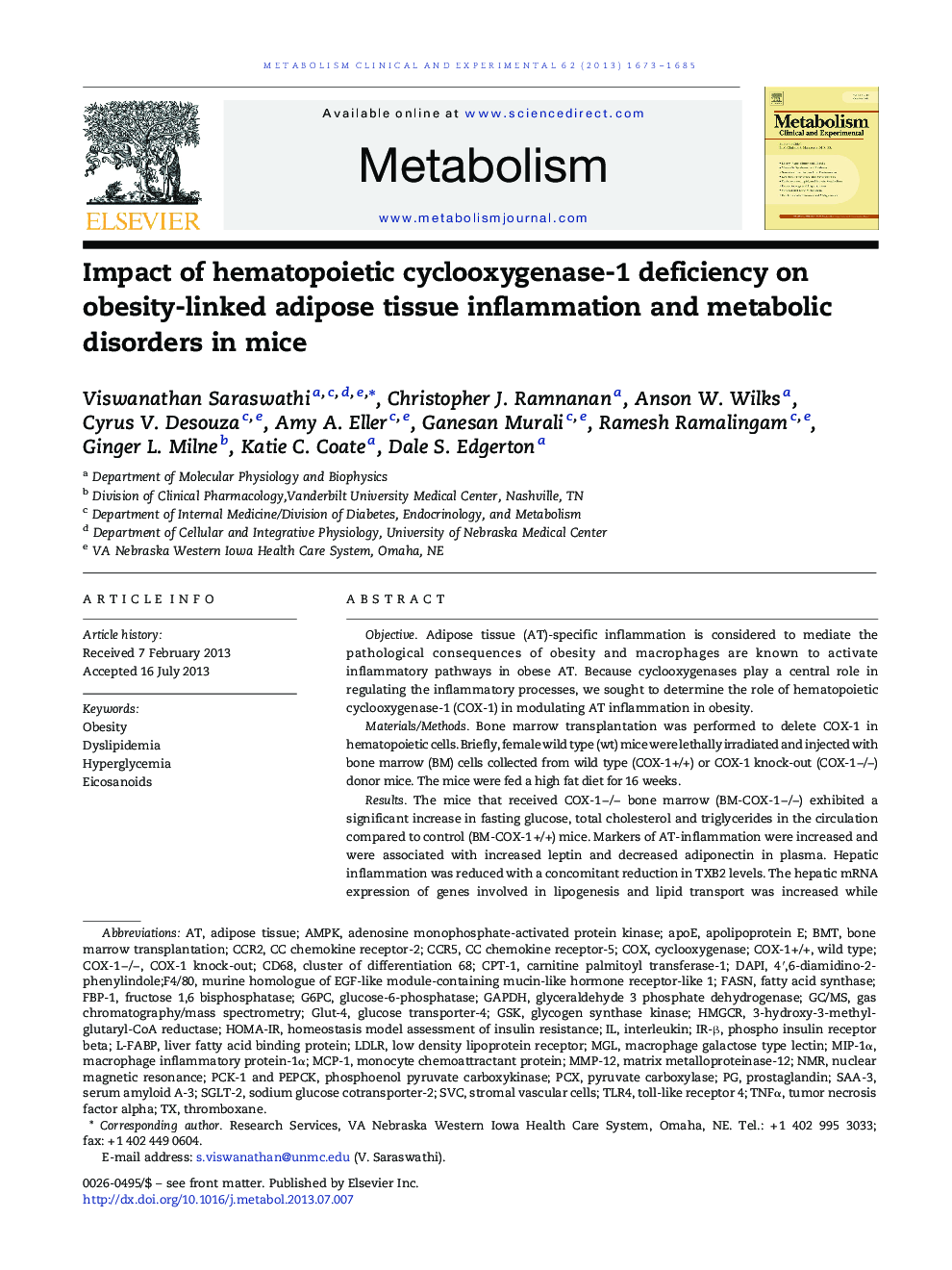| کد مقاله | کد نشریه | سال انتشار | مقاله انگلیسی | نسخه تمام متن |
|---|---|---|---|---|
| 2805951 | 1157090 | 2013 | 13 صفحه PDF | دانلود رایگان |

ObjectiveAdipose tissue (AT)-specific inflammation is considered to mediate the pathological consequences of obesity and macrophages are known to activate inflammatory pathways in obese AT. Because cyclooxygenases play a central role in regulating the inflammatory processes, we sought to determine the role of hematopoietic cyclooxygenase-1 (COX-1) in modulating AT inflammation in obesity.Materials/MethodsBone marrow transplantation was performed to delete COX-1 in hematopoietic cells. Briefly, female wild type (wt) mice were lethally irradiated and injected with bone marrow (BM) cells collected from wild type (COX-1 +/+) or COX-1 knock-out (COX-1 −/−) donor mice. The mice were fed a high fat diet for 16 weeks.ResultsThe mice that received COX-1 −/− bone marrow (BM-COX-1 −/−) exhibited a significant increase in fasting glucose, total cholesterol and triglycerides in the circulation compared to control (BM-COX-1 +/+) mice. Markers of AT-inflammation were increased and were associated with increased leptin and decreased adiponectin in plasma. Hepatic inflammation was reduced with a concomitant reduction in TXB2 levels. The hepatic mRNA expression of genes involved in lipogenesis and lipid transport was increased while expression of genes involved in regulating hepatic glucose output was reduced in BM-COX-1 −/− mice. Finally, renal inflammation and markers of renal glucose release were increased in BM-COX-1 −/− mice.ConclusionHematopoietic COX-1 deletion results in impairments in metabolic homeostasis which may be partly due to increased AT inflammation and dysregulated adipokine profile. An increase in renal glucose release and hepatic lipogenesis/lipid transport may also play a role, at least in part, in mediating hyperglycemia and dyslipidemia, respectively.
Journal: Metabolism - Volume 62, Issue 11, November 2013, Pages 1673–1685